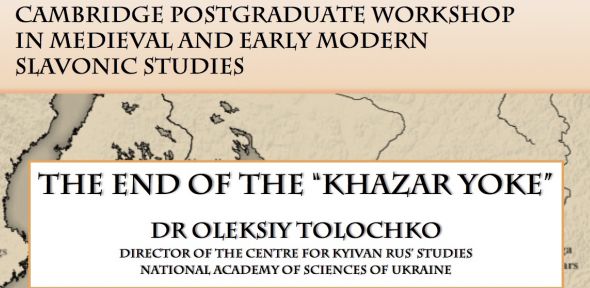
Calling all UK-based graduate students and scholars in medieval history and culture: Cambridge Ukrainian Studies, a programme of the Department of Slavonic Studies at the University of Cambridge, is hosting a workshop entitled The End of the “Khazar Yoke”.
The workshop will take place on Friday 12 February 2016 from 11am to 2pm at King's College, Cambridge. For accepted workshop participants, costs for domestic economy train/coach travel to and from Cambridge will be reimbursed, and coffee and lunch provided. Led by Dr Oleksiy Tolochko, Director of the Center for Kyivan Rus’ Studies at the Institute of Ukrainian History, National Academy of Sciences of Ukraine, the workshop will explore the fundamental premise of medieval Slavonic Studies that the Kyivan polity emerged and initially developed in competition and in confrontation with the Khazar Khanate. Only one source supports this thesis – the Primary Chronicle; no other source documents any significant contact between the Rus’ of Kyiv and the Khazars. Using contemporaneous sources, the workshop will deliberate the nature of the Rus’-Khazar relationship and the root of the historiographical myth of Khazar domination of the Rus’ put forth in the Primary Chronicle.
To apply, please send a brief CV and statement of interest to Miss Olga Płócienniczak, Department of Slavonic Studies, University of Cambridge, at slavon@hermes.cam.ac.uk by Wednesday, 3 February 2016.
Further information about the workshop is available for download.





